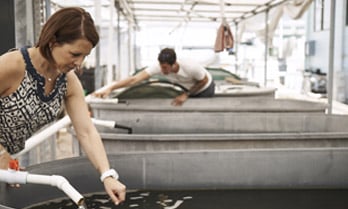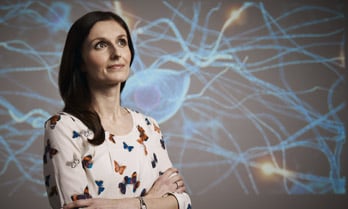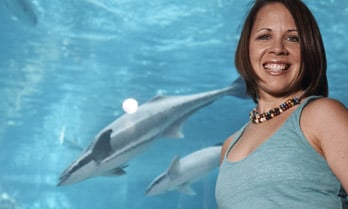







29 November 2023
Molecular antimicrobial resistance in Neisseria gonorrhoeae positive samples from Fiji
Growing up in Italy, Lucia was fascinated with travel, and discovery and had a dream of becoming an inventor. In her final year of school she nurtured a passion for social justice which led her to undertake a Masters of International Social Development, with a particular focus on the imbalances of the global distribution of wealth and access to healthcare. With limited funding in Italy for women in science, and as the first in her family to go to university, Lucia continued her studies in Australia which led her to where she is now, leading research in developing countries to reduce the burden of infectious diseases endemic in communities of the Pacific region. Lucia's road to science was not specific to one breakthrough moment, but a series of events led by her curiosity and search for more.
A world leader in epidemiologic research, Dr Romani has over 15 years’ experience leading and collaborating on implementation research focused on infectious diseases in low and middle-income countries. Respected as a world leader in her field, Dr Romani has extensive knowledge in a diverse range of areas, including large-scale clinical trials and observational studies, community interventions for neglected tropical diseases (NTDs) and sexually transmitted infections (STIs) in resource-poor
settings.
Over the past 10 years, Lucia’s research has focused on the epidemiology, control and elimination of NTDs in the Pacific. She was recently awarded a grant to reduce STI prevalence and adverse perinatal outcomes in Fiji while addressing antimicrobial resistance in a population of over 150,000 people. Lucia is recognised internationally receiving over $4.5 million in funding as CIA and over 25 grants as Co-CI worth $21 million. Lucia is actively involved in the oversight of four large clinical trials, funded by NHMRC and the Bill & Melinda Gate Foundation, to control infectious diseases in the Pacific Islands.
“There are two important lessons that I have learned during my career in science: to remember that we never stop learning and growing, and that your failures are just as important as your successes, because they teach you just as much. Through this Fellowship, I hope to show young people, and especially girls, who would like to unlock a career in STEM that there is space for them, that they have important contributions to make, and STEM is a field where they can discover their fullest potential,” said Romani.